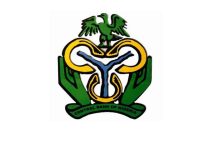- Credit to the private sector to hit N28tn by end of 2019
The Central Bank of Nigeria (CBN) has put banks’ refunds to customers as of November 30, at N76.75 billion and $20.90 million.
This is coming as the Managing Director of Stanbic IBTC Bank Limited, Dr. Demola Sogunle, has predicted that the banking sector credit would hit N28 trillion by the end of the year, up from the N16 trillion at the end of September.
CBN’s Director, Consumer Protection Department (CPD), Mr. Kofo-Abdulsalam Alada, gave the figure on banks’ refunds yesterday at a workshop for business editors and members of the Finance Correspondents Association of Nigeria in Yola, Adamawa State.
Alada said the refunds arose from various financial-related complaints.
According to him, the refunds are in line with the mandate of the department of the bank to promote consumer confidence in the financial system.
Highlighting some achievements of the department, the director said they had resolved no fewer than 16,263 complaints against banks from 2012 to November 30.
“The cumulative number of complaints against other financial institutions that were resolved or closed from 2012 to the end of November 2019 is about 257.
“We resolved over 13,000 complaints, obtained refunds of N76.75 billion, $20.90 million, among others to bank customers as of November 30.
“The department has also developed a consumer-protection framework and established a guide to charges by banks and OFIs,’’ he stated.
Alada, represented by Mr. Tyoden Nanfwang of the CPD, noted that there was an extraordinary imbalance of power between the service providers and the consumers.
According to him, the goal of consumer protection is to mitigate this power imbalance.
The director said one of the roles of the department was to entrench fair and responsible practices among financial service providers through regulations.
Alada, however, called on bank customers to report any financially-related complaints to the CBN anytime they were dissatisfied with responses from their banks.
Credit to Private Sector to Hit N28tn
Meanwhile, the Managing Director of Stanbic IBTC Bank Limited, Dr. Demola Sogunle, has predicted that the banking sector credit would hit N28 trillion by the end of the year, up from the N16 trillion at the end of September 2019.
Sogunle anticipated that recent policies by the CBN, such as the 65 per cent minimum loan to deposit ratio, would impact the economy positively.
Sogunle, at the 10th anniversary of CRC Credit Bureau Limited in Lagos yesterday, said: “Talking about the small and medium scale enterprise (SMEs), for instance, while the banks are willing to lend and support them, you discover that most of them lack knowledge about the business they want to do and the infrastructure challenges they are going to face.
“Besides, the quality of personnel is poor. So, while the credit supply side is available, the demand side is constrained. Even if you give zero per cent interest loans, there are so many other things that are outside the control of the owners of the businesses that always affects their performances,” he said.
Banks’ Capital Adequacy Ratio (CAR) and non-performing loans (NPLs) ratios have been trending in the right direction, with industry NPL presently at 6.6 per cent and CAR at 17.2 per cent.
Also speaking at the event, the Managing Director, First Bank of Nigeria Limited, Dr. Adesola Adeduntan, said external challenges had affected the readiness of banks to lend to SMEs, adding that determination of the CBN through most of the policies has made lending to SMEs work very well.
Adeduntan, who was represented by the Executive Director, Corporate Banking, Dr. Remi Oni, said there must be high level of confidence in the SMEs and other factors to sustain credits flow.
The Country Manager, International Finance Corporation (IFC), Eme Essien Lore, who was the guest speaker at the event, said for Nigeria to accelerate its economic growth, it must increase lending to SMEs in particular and the other sectors generally.
Lore said while credit reporting had improved access to credit, there was the need to build confidence and further increase lending to SMEs, noting that Nigeria is still behind in many areas compared to its peers.
The IFC chief, however, said the member of the World Bank Group was committed to working with Nigeria to improve its economy and well-being of the citizens.
Also, speaking, an economist, management and financial consultant, Dr. ‘Biodun Adedipe of B. Adedipe Associates Limited, said one of the ways to make the SMEs perform well was for the banks to go beyond just providing credit.
“Apart frommaking funds available to the SMEs, the banks should also find ways of improving the capacity of owners of the SMEs so that the funds could be well utilised for better results,” he said.
The Chairman of the occasion and former Deputy Governor, CBN, Mr. Tunde Lemo, said complete and accurate credit reporting benefits all actors in the economy, including lenders, employed individuals, entrepreneurs, and government at all levels.
“It is a national asset that must be nurtured to create wealth, therefore it must enjoy the support of all,” Lemo said.
According to him, a credit bureau increases access to credit, supports responsible lending and reduces credit losses, reduces the cost of credit for responsible borrowers and strengthens banking supervision in monitoring systemic risks.
“Across most of African countries, Asia and Latin America, credit bureau can be a key enabler for expanding lending business because it distributes information about the payment behaviours of customers and entities,” he added.
Source: THISDAT














